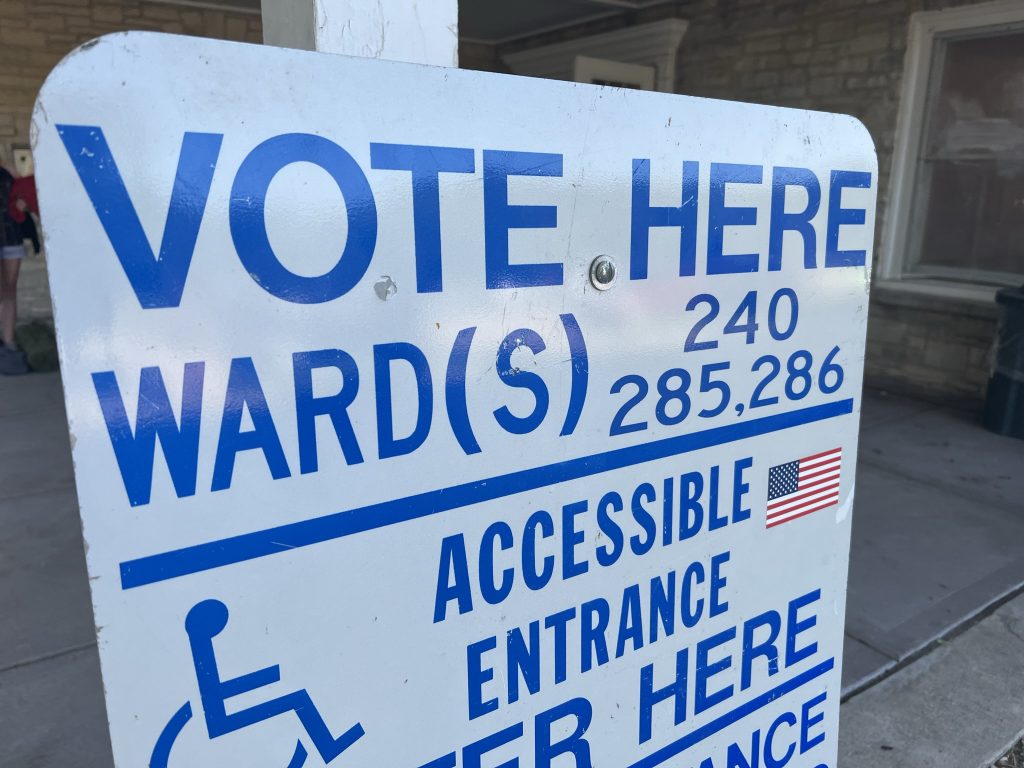Constitutional Amendment Would Block Ranked Choice Voting
Proposal designed to halt bipartisan bill.
The Wisconsin Senate Committee on Shared Revenue, Consumer Protection and Elections held a public hearing Thursday on a proposed resolution to amend the state constitution to prohibit the use of ranked choice voting in all elections.
The proposed resolution, authored by Sen. Duey Stroebel (R-Saukville) and Rep. Ty Bodden (R-Hilbert) is one half of a dueling pair of bills on the issue. A separate bill that has bipartisan support would establish a final-five runoff system for the state’s congressional elections.
The umbrella term “ranked choice voting” refers to a variety of voting systems, some of which have been implemented in places across the country. A ranked choice voting system allows as many candidates who want to be considered to appear on the ballot and when voters go to the polls, they rank them in the order they prefer.
When the votes are counted, if one candidate gets more than 50% of the first-choice vote, that candidate wins. However if none of the candidates reaches that threshold, the rankings get used. The candidate with the lowest vote total is eliminated and all of the voters who selected that candidate as their top choice have their votes moved to their second choice and the votes are tallied again. If the 50% threshold is still not reached, the process continues, eliminating the lowest vote getter in each round, until a winner is decided.
A final-five runoff system is similar, except the number of candidates is first whittled down to just five through a nonpartisan primary election. The candidates with the five highest vote totals in the primary move on to the general, in which voters rank the candidates from one to five and votes are counted the same way, eliminating the candidate who receives the lowest amount of votes and counting votes for second-choice candidates until one of them reaches 50% of the total.
In both systems, voters can rank all the candidates on the ballot or only one.
Critics of the systems say the process can be confusing to voters and take a long time to determine a winner. The proponents of the final-five bill in Wisconsin say those problems are limited to straight ranked choice voting, and their system solves those problems.
In his testimony in the committee on Thursday, Stroebel said either system involves “throwing out” people’s votes at each round of counting.
“One of the biggest issues associated with this voting method is ballot exhaustion, which occurs when voters do not rank every candidate on the ballot; if the candidates who these voters did rank are eliminated through the initial rounds of tabulation, then their ballots are effectively excluded from the final vote total,” Stroebel said. “As a consequence, a candidate can be elected without being the choice of the majority in the final round of tabulation.”
Proponents of the system said that ranked choice voting actually gives voters more of a chance to have their vote counted than the system we have now — which practically eliminates the possibility of third party candidates winning an election.
The two Democrats on the committee, Sens. Jeff Smith (D-Brunswick) and Mark Spreitzer (D-Beloit) are both co-authors of the final-five voting bill. They questioned the need to amend the state constitution to prohibit the system, ending all possible debate on the issue.
“This seems highly unusual, to have a constitutional amendment aimed at ending a debate for good on a bill that I don’t even think has gotten a committee vote. Why?” Spreitzer said. “Obviously there’s a bill out there to do ranked choice voting, final-five primary, kill that bill in committee, kill it in caucus, kill it on the floor. But why a jump to a constitutional amendment to say we can’t even have that discussion?”
“It’s such a bad idea,” Stroebel said. “And it’s so against what we stand for in our democracy that it should never be considered. It’s just a bad idea that leads to bad and unexpected results.”
In order to be adopted, the constitutional amendment needs to pass the Legislature in two consecutive sessions and then be approved by voters in a statewide referendum.
Encouraging UW students to vote in their home states
In the hearing, the committee also heard testimony on a bill that would require Universities of Wisconsin schools to provide information to students from out of state on how to vote absentee in their home states.
Democrats have opposed the measure, saying the Legislature should work to encourage out-of-state students to become more involved in the community in the hopes that they will remain in Wisconsin after college, not work to keep them at arm’s length.
Senate elections committee holds hearing on prohibiting ranked choice, out-of-state student voting was originally published by Wisconsin Examiner.























The republicans never stop trying to get rid of participation in government by all eligible citizens do they.
They are truly shameless in their efforts to establish a dictatorship.
Ranked choice voting makes 3rd party candidates more viable and therefore takes power away from political machines.
Other than that I don’t see a problem. Even the “increased time need to count the votes” issue goes away with computers.